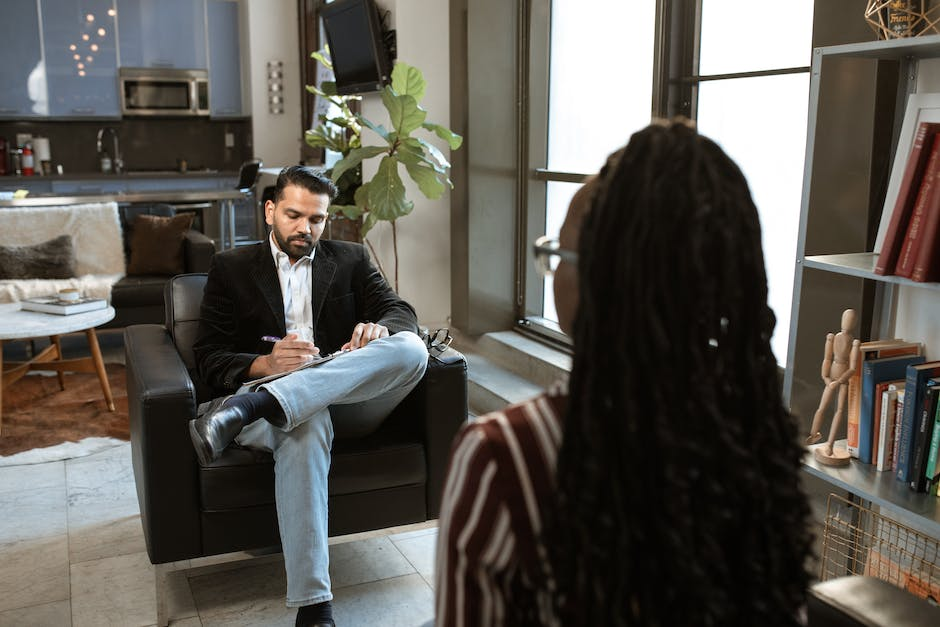Interviews are one of the biggest parts of the job seeking process. Interviews give you the opportunity to speak about yourself, why you would be good for the job, and what you can offer the company.
You will typically be interviewed by more than one person which can make things a little more complicated. With some teams you have to do a group interview which can be tough when it comes to judging who performed well.
It is hard to know if you performed well in an interview unless you were properly prepared. If you were not prepared properly, then there is nothing worse than thinking that went well and then finding out that you did not get the job.
There are many ways to know if an interview went well and whether or not you performed well. This article will tell you some ways to know if an interview went well and how to be more prepared next time.
The job interview was smooth and natural

Interviews can be nerve-wracking, especially if you’re going for a job you really want. You want to make a good impression and answer all questions well.
It’s normal to feel anxious, but try to keep your confidence up. You already know how to do your job well, so believe in yourself and be honest in your interviews.
Whether you are interviewing for a position at your current company or another company, you should always try to make the interview natural.
Interviewers like people who are natural and confident, which puts you in good standing for the job.
But how can you tell if an interview went well? There are some obvious signs that you learned how to recognize in this article.
You answered all of the questions thoroughly

After the interview, you should take some time to review your notes and answer any questions you had about the company or position. This shows that you are interested in the job and willing to put in work after the interview.
You should also think about questions you had for them. If there was time at the end of the interview, ask some of your questions so that you can see whether or not they are interested in meeting your needs as an employee.
Overall, it is important to feel like you genuinely answered all of their questions fully. If you felt like you ran out of time or had to cut parts of your answers short, then they probably felt that way too.
You had time to ask questions about the company

Questions you ask about the company, the position, and the future of the company are important.
As aspiring professionals, we are constantly researching firms and their positions to be prepared for interview questions. The best questioners also do some research on the company itself to connect their answers to what the company offers.
But even more important than that is asking questions that help you learn more about the position and what you would be doing on a day-to-day basis.
Interviewers appreciate when interviewees take an interest in the organization and demonstrate that they have done some research on their own. This also shows that you are interested in the position and want to know more about it.
And if you don’t get the job, you at least learned something new about the organization.
You knew what the next steps were if you were chosen
An obvious sign that the interview went well was if you were told what the next steps in the process were.
If you left the interview knowing what would happen next, then you know that you provided enough information and answered enough questions to be chosen.
The employer will most likely tell you whether or not you are selected, so there is no need to worry about that. You did a great job and put in a lot of effort, so just relax and wait for their decision!
Heard of pre-employment screening? It’s when the potential employer checks your background to make sure you’re suitable for the job. This includes things like criminal records and educational qualifications. If they find anything negative, they won’t hire you.
You felt confident going into the interview

Even if you did not have any experience or knowledge in the field you were interviewing for, you should have a good feeling about the interview.
If you were well-prepared, if you knew your strengths and qualifications and could articulate them clearly, if you could connect with the interviewer, then chances are the interview went well.
Interviews can be nerve-wracking, especially when you want the job really bad. It is important to keep a cool head and be yourself!
Bullet point: The interviewer(s) seemed to like youť
Even if they did not say so explicitly, it is possible that the interviewer(s) liked you. They may have told other people this, and maybe they will offer you a job because of that.
It is important to remember that interviewers are human too, and they may say things or act in ways that are not entirely sincere. Keeping this in mind will help you gauge how much they liked you.
Your resume is tip-top shape

If you can say that your interview went well, you can probably credit your preparedness. Your resume should be updated and ready to go, and you should have some idea about the company and the position you’re applying for.
An interview is when someone interviews you to see if you are qualified for a job they are offering. If you are the one interviewing, then you are the one who is deciding if someone is qualified or not.
The interviewer asks questions in order to find out more about you and what qualifications you have that would fit for their job position. Questions can be tricky depending on how they are asked.
You should always be prepared to answer questions related to your career history, your strengths and weaknesses, questions that challenge who you are as a person, and general questions about the job position itself.
If you know the basics of the job position and can answer questions clearly, then you will look more confident and show that you are qualified.
You knew your answers to their tough questions

Having solid, confident answers to the tough questions interviewers ask is a must. You want to be able to say what you’re able to do, what you’ve done, and why you’re the person for the job.
Interviewers typically ask questions in these categories: personal questions, situational questions, hypothetical questions, and favorite question sets.
Personal questions include things like: “What kind of phone do you have?” or “Where did you go to school?” or “Do you have any children?” or “Where are you from?”
Situational questions usually start with words like: “Tell me about a time when…” They ask about situations that lead to success or failure. They want to know your thought process.
Hypothetical questions are usually set up like: “What would you do if…” They are asking for future behavior. They want to know how you would respond in a certain situation.
Favorite question sets are ones that repeat frequently. The most common ones are asked over and over again.
